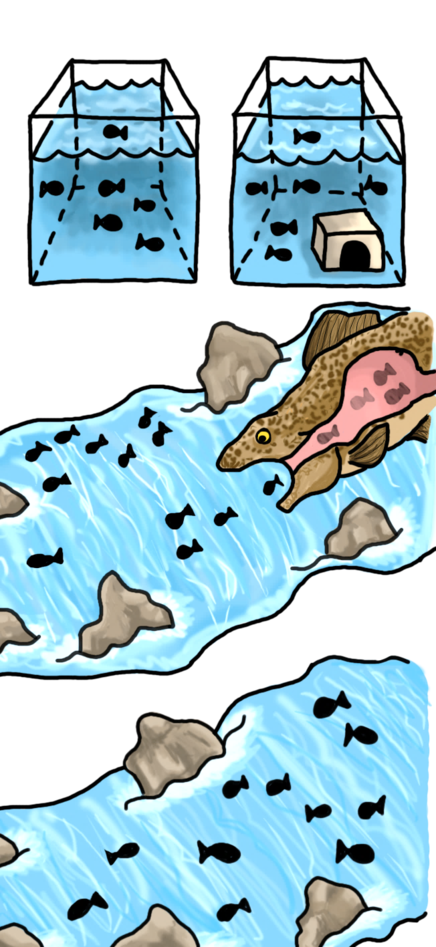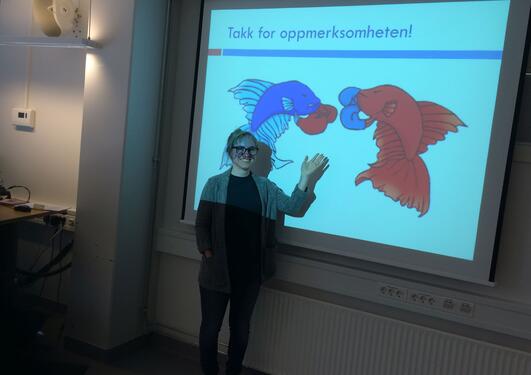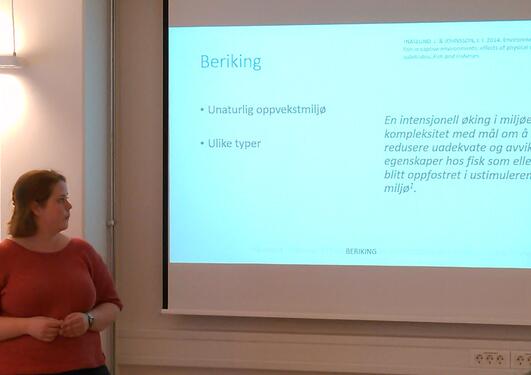Martine finishes her Master thesis
Martine R. Solås reports in her Master thesis that enriched rearing reduced post-release growth of Atlantic salmon fry (Salmo salar). Moreover, predatory brown trout fed selectively on small fry.

Hovedinnhold
Martine has been studying if enrichment can improve the post-release survival of hatchery-reared Atlantic salmon fry (Salmo salar) from a field experiment conducted in three years. The happy conclusion of Martine’s work was achieved on 21 June when she obtained her Master degree in Marine Biology. Her work is relevant for conservation and management practices of fish populations that are threatened. Her research builds on previous experimental studies that have reported that enrichment during rearing promote a more flexible behavioral repertoire in fish. The question is whether releases of enriched reared juveniles could be a way to increase fish survival?
In the field experiment, Martine was investigating (1) immediate post-release predation mortality and (2) survival two months after release in Atlantic salmon fry (Salmo salar) from two rearing treatments (distinguishable by alizarin marks in their otoliths). One group was reared in a structurally enriched environment and the other in a conventional, plain environment. Predation mortality was investigated by capturing predators and examining their stomach contents for salmon fry. In addition, Martine used the ratio of enriched and plain recaptured fry from electrofishing two months later as a proxy for differences in survival of enriched and plain fry after the release. She found that predation mortality on the two groups just after release differed only for one of the 3 experimental years, when predators had consumed 60% of the fry from the plain treatment and 40% from enriched. Equal numbers of fry from both treatments were recaptured two months later in all except one year, when 63% of the sampled fish originated from the plain treatment.
Martine’s research show that enriched rearing reduced the growth of the fish, and that predation was size-selective towards small prey. Her novel results suggest that enriched rearing possibly can provide salmon with an enhanced ability to hide from predators immediately after release, but that the enrichment might not be sufficient to promote enhanced survival beyond that. In her thesis, Martine discusses the potential, and limitations, of structural enrichment during rearing and procedures used when releasing fish. She suggests that future research should take a more detailed look at the effects of different release practices on survival of captive-reared fish.
Martine's thesis is fourth in the series of MSc theses focusing on different aspects of enriched growing environment in fish (see links below).



